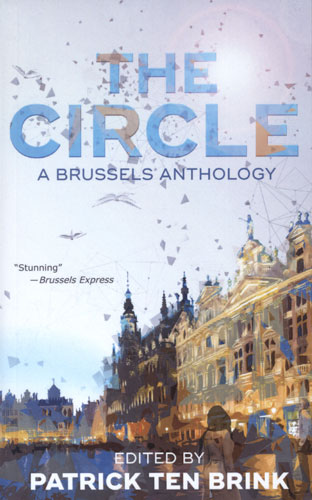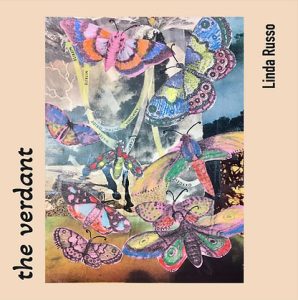The Circle
Editor Patrick ten Brink has rounded up a mix of genres for the newly released The Circle: A Brussels Anthology.
Editor Patrick ten Brink has rounded up a mix of genres for the newly released The Circle: A Brussels Anthology.
Among these mix-genre works is the inclusion of a script by Hamed Mobasser called “Doggy Bag” that stars two women and a dog named Punch. Mobasser packs twists and turns into his short witty script that has Sarah dog-sitting while Lauren takes a trip. Sarah gets distracted by a man, forgets her doggy duties, and the next morning:
slowly wakes up, covered with white sheets. Tom stirs next to her. Sarah smiles to herself for a second before jumping out in panic.
SARAH: Punch!
But back in Lauren’s apartment, “Punch appears to be dead.”
Several inclusions in this anthology are prize winners, including Colin Walsh’s “The Flare Carves Itself Through the Dark.” Take a look at his description of a night when Brussels’ youths are hanging out before one of them leaves for college:
Shirtless lads with see-sawing shoulders glowered with 99s dribbling over their knuckles while the young wans glistened in the shade, make-up warping in the heat. [ . . . ] The evening sunsets there were nightmares of tortured colour.
Another prizewinning writer is Dimitris Politis, whose piece vividly-written “The Extraordinary Colours of an Ordinary Day” is based on the 2016 bombing of Maalbeek metro station and brought to life with stunning detail. Previous to the explosion:
The Brussels sky had already started to light up. Its pale blue was gradually getting brighter, in its timid attempt to mock the colourless apathy of the city, with its dusty tree trunks, sombre buildings, grey tarmac and drab cobblestones, and the mousy, mute, silhouettes rushing along the pavements.
Then, at the seventh stop along the train route:
Huge orange ball with a taste of gunpowder, I was assailed by a deafening, rumbling sound, by flaring flames, by a golden burning sensation. [ . . . ] Maalbeek metro station saw a different kind of “sunlight” that day.
Now if you’ve ever joined a writers’ group, Andreas Bergsten’s “Poetic License, by Gilbert Jones” might strike a familiar note. In order to even the score after receiving unkind feedback on his writings, Gilbert composes a running tell-all limerick using the actual names of the group’s writers.
Much more seriously, and one of the most emotional pieces in the book allows Richard Boland, who refers to himself as a “coincidental survivor,” to pay tribute to friends who died of AIDS. Among them are Harold, who died in rural Oregon, and Fredrick and Randall:
Harold,
[ . . . ] In the order of service, it read he had died of complications of pneumonia, because that sounded cleaner in Clatskanie.
[ . . . ]
Fredrick,
who’d married his lover Randall, decades before their commitment was considered legal.
Randall,
Fredrick’s husband[. . . . ] He fed, kissed, washed, held, laughed with, cried with, slept with Fred and finally outlived him by three weeks.
Poetry holds its own in this anthology. S. R. Harris, best known for her children’s book series about a sheep called Skye, departs from that genre in “Another Country,” where she reflects on the country she left:
I didn’t think I’d bring my country with me
but it came to visit, uninvited,
wound itself around me like my mother’s scarf.
Lately I find it rare to read newly published poetry that rhymes, but here I get my fill. Paul Speight pens these lines in “Talking About Death”:
To paint their grieving and sadness
onto our own, personal canvas
is natural.
Claire Davenport expertly rhymes a horrific experience in “What’s What”:
You took me to that office,
at the back never seen.
Me the wavering novice,
and you the cat, cream.
Whereas love comes through in Shyam Sunder Gopalakrishnan’s “Silver Moon”:
in the stillness of the night you ride through the
heavens,
and without your shining light, darkness descends.
Reading an anthology is a great way to sample all types of writings, even those one might normally skip over. In the case of The Circle: A Brussels Anthology, if you read them all, you’ll get a taste of the works of thirty-four diverse authors, each expressing a unique version of life in Belgium’s capital city.





